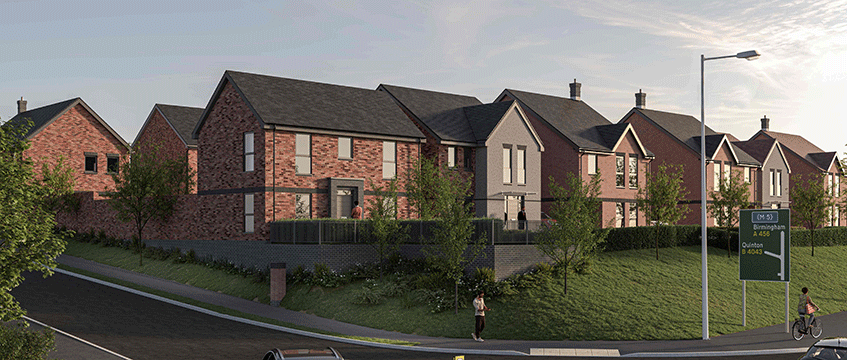Housebuilder lashes out over planning system ‘struggles’
The managing director of a Midlands-based developer has hit out at the “significant struggles” facing SME housebuilders following “an extremely difficult and drawn-out process” to secure planning consent for 350 homes.
Ben Leather, of Spitfire Homes, described lengthy delays over the preceding year caused by the current planning system.
Spitfire recently secured consent for three separate schemes in the space of a week.
The managing director of a Midlands-based developer has hit out at the “significant struggles” facing SME housebuilders following “an extremely difficult and drawn-out process” to secure planning consent for 350 homes.
Ben Leather, of Spitfire Homes, described lengthy delays over the preceding year caused by the current planning system.
Spitfire recently secured consent for three separate schemes in the space of a week.
The largest of the projects is a 280-home scheme in Radcliffe-on-Trent, Nottinghamshire, followed by 61 properties in Halesowen, Dudley, and a collection of 30 homes in the Worcestershire village of Crowle.
Leather said: “Despite our recent planning success, as an SME housebuilder we experience significant struggles with the current planning system on a daily basis – something that is felt throughout the industry.
“Reserved matters permission for one of these developments took almost 12 months to secure, despite being an allocated site in the local plan with outline permission already in place, and no objections from any statutory consultees.
“Another development on a brownfield site was challenged by unjustified design and highways requests, while staffing changes within the planning department further slowed the process which took more than a year.
“These are just some recent examples of how the current system prevents housebuilders from delivering homes that are needed in strategic locations within acceptable timeframes.”
Leather said he hoped new measures recently set out by housing secretary Michael Gove would unblock the planning system and enable the building of more homes in the right places where there is local consent – but he fears they don’t go far enough.
“We support the principle of paying higher planning fees if it means local planning authorities spend those additional fees on increasing the resources within their teams and it isn’t diverted to other council departments,” he said.
“With increases in interest rates, the cost for SME housebuilders to put sites on hold while waiting for planning approvals can be crippling for small businesses, so this change is absolutely essential to promote the future success of these businesses and ensure their continued contribution to the economy.”
However, he said it was vital for government to reinstate housing targets.
“The recent Save Our SMEs campaign, championed by the Home Builders Federation, further demonstrated the sentiment from housebuilders similar to Spitfire Homes, with 166 businesses signing the open letter to government in response to recent policy amendments which remove the requirement for mandatory local housing targets, further throttling the amount of planning permissions granted for new homes,” he said.
“It’s vital housing targets are reinstated and are not reliant on conversion of commercial and agricultural buildings to provide more homes, as advocated by Gove.”
To send feedback, e-mail julia.cahill@eg.co.uk or tweet @EGJuliaC or @EGPropertyNews
Image: Spitfire











